General
UNESCO Documentary Heritage Seminar Calls for Preservation of Africa’s Oral Knowledge
Published
2 years agoon
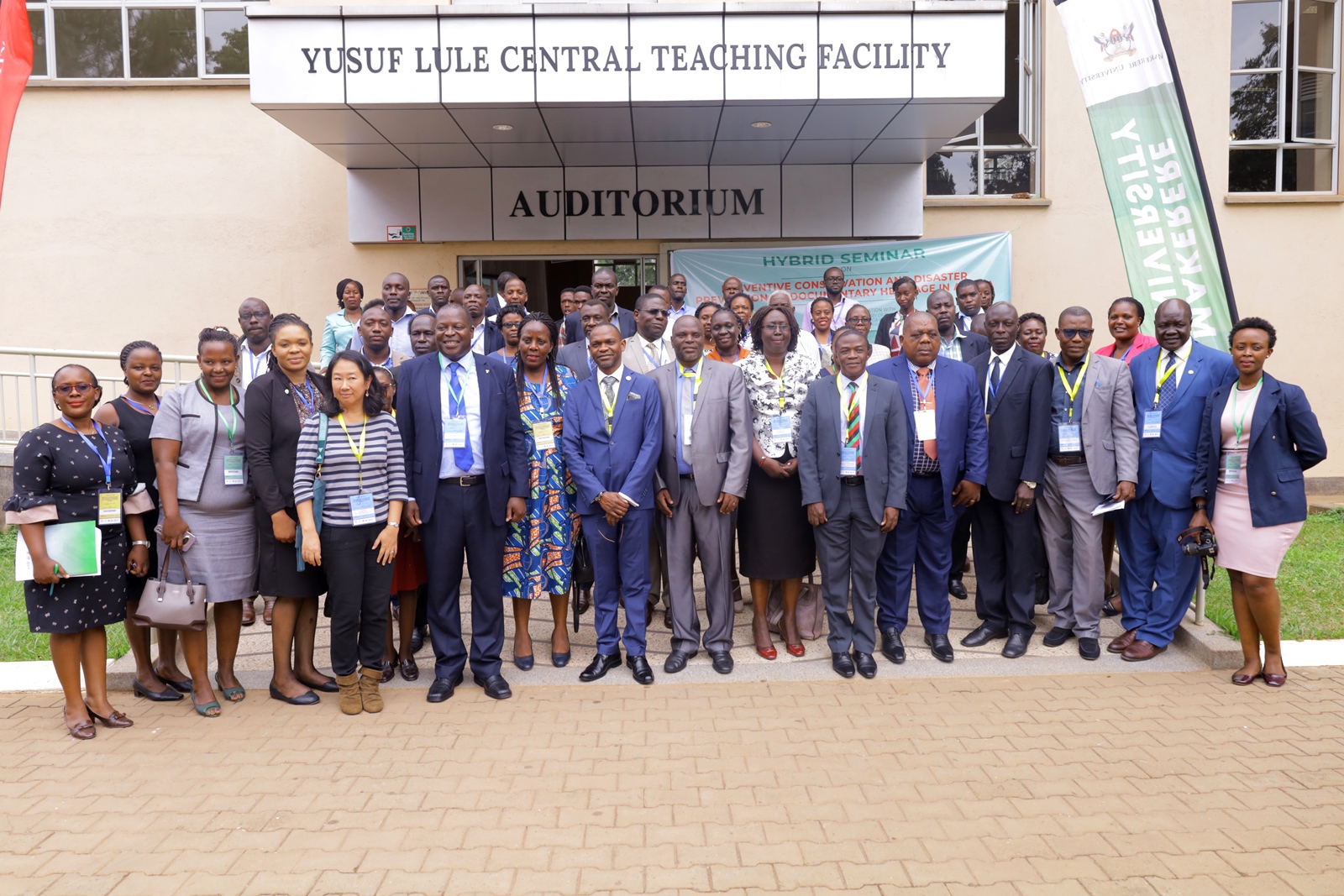
Makerere University in collaboration with the Sub-Committee on Education and Research Working Group Africa (SCEaR-WGA) of UNESCO Memory of the World and Uganda National Commission for UNESCO (UNATCOM) organized hybrid a seminar on “Preventive Conservation and Disaster Reduction of Documentary Heritage in Africa”. Held from 4th to 5th July 2023 in the Yusuf Lule Auditorium, the objective of the Seminar was to provide an input to the guide on Preventive Conservation and Disaster Prevention of Documentary Heritage in Africa being developed by SCEaR-WGA.
Officially opening the seminar, the Deputy Vice Chancellor (Academic Affairs), Prof. Umar Kakumba appreciated SCEaR-WGA and UNATCOM for their invaluable support in organising and hosting the seminar. He therefore congratulated the Convener Prof. Elisam Magara, the Department of Records and Archives Management, the East African School of Library and Information Sciences (EASLIS) and the College of Computing and Information Sciences (CoCIS) on championing the initiative at Makerere University.
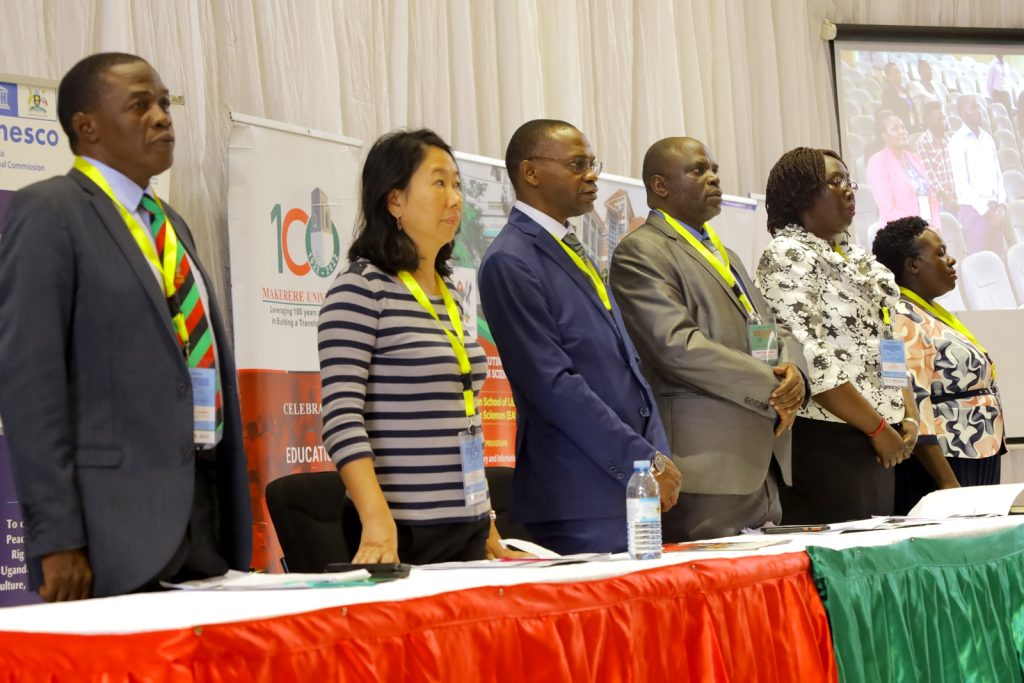
“The strength of any nation is measured largely by the strength, character and proficiency of its people. Beneath the people is the knowledge – the human side of enterprise. Knowledge does not emerge from space, it must be generated, managed and preserved” noted Prof. Kakumba. This, he added, is particularly important in today’s knowledge economy for the sake of providing solid points of reference for future generations.
“Makerere University is happy to associate with UNESCO’s Memory of the World Programme and many partners that seek to foster this document and knowledge preservation” he added.
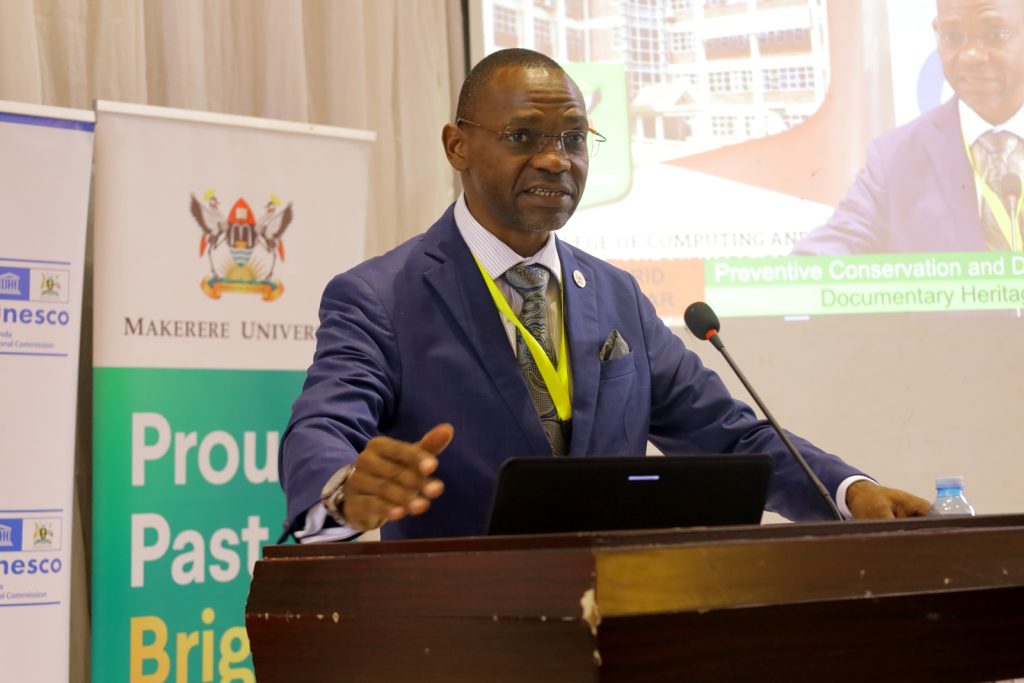
In line with documentation and preservation efforts, Prof. Kakumba shared that the University Leadership is in the final stages of setting up the Muteesa II Memorial Museum and upon completion the reconstructed Main Administration Building would allocate space for a Museum.
Addressing participants, Ms. Misako Ito, the Regional Adviser for Communication and Information in Africa, UNESCO thanked Makerere University and Prof. Elisam Magara in particular for organising the event. She noted that Japan as a country that is prone to natural disasters has in response come up with very well-developed disaster prevention strategies.
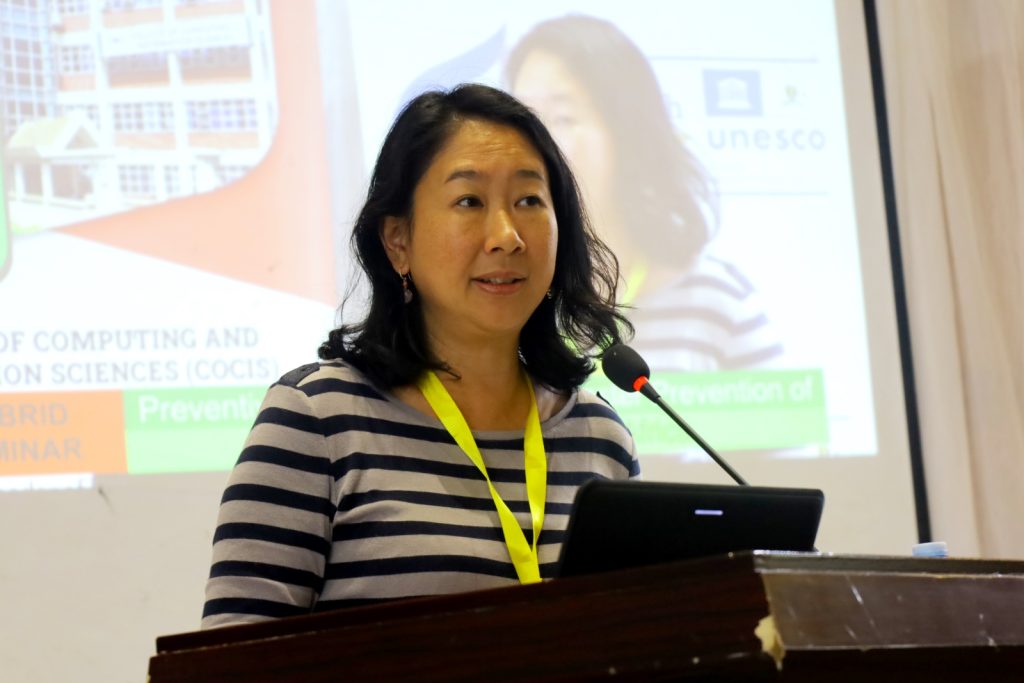
“For last four years, Japan has funded this project to promote Preventive Conservation and Disaster Prevention of Documentary Heritage in Africa” she added relatedly.
Ms. Misako informed participants that UNESCO had on 1st July 2023 launched a new call for nominations for the Memory of the World International Register and encouraged the Uganda National Memory of the World Committee to submit entries. She noted that because only 5% of documentary heritage entries come from Africa despite its rich history, UNESCO has held workshops in Madagascar and Kenya to raise awareness of the initiative.
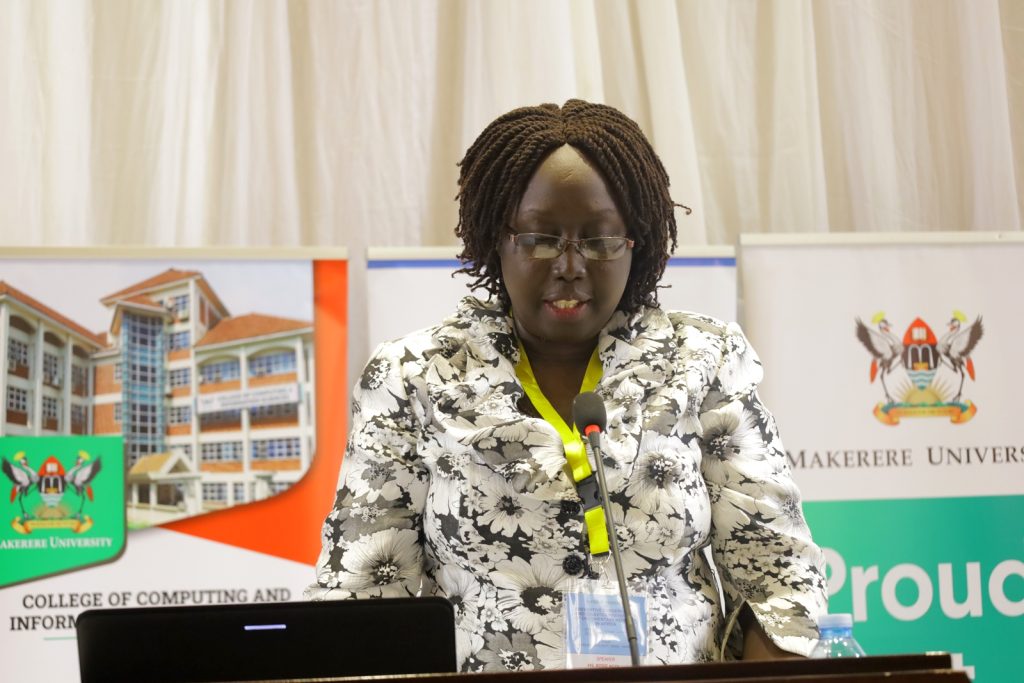
Ms. Misako said the latest call has added an important gender component to prominently reflect women in archives and historical narratives. She equally encouraged participants from other African countries to consider preserving the documentary heritage of revolutionary movements, which have had significant impact on the continent’s political leadership.
As Convener, Prof. Elisam Magara introduced members of the SCEaR-WGA namely: the Group Coordinator, Prof. Papa Momar Diop, Associate Professor at the University Gaston Berger, Senegal; Ms. Esther Olembe, Director of the National Archives of Cameroon; Dr. Lydia Waithira Muthuma, Senior Lecturer, Technical University of Kenya; Mr. Apolinaitre Tokanji Gbaguidi, Professor of Digitization at the Calavi University of Abomey, Benin; and Mr. Seyni Moumini, specialist in sub-Saharan Africa and Islam manuscripts at the Abdou Moumouni University, Niger. He equally introduced Ms. Hasiniaina Rajaonarivelo from the Malagasy National Commission for UNESCO who held a session on how to successfully register an entry in the Memory of the World.
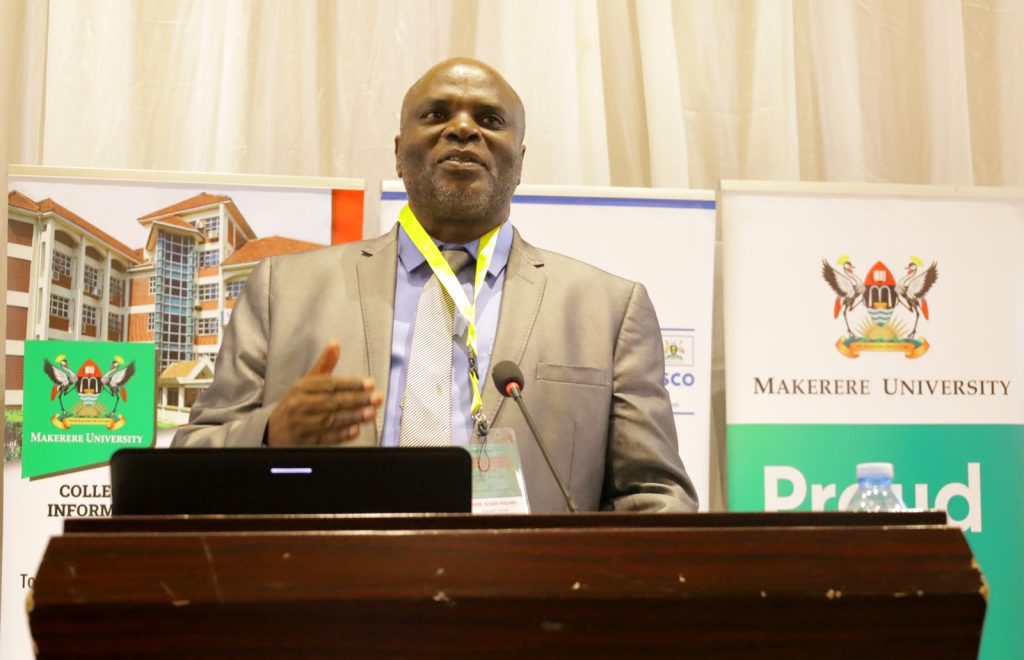
During the hybrid seminar, participants listened to a keynote address delivered virtually by Mr. Lothar Jordan, Chair of the UNESCO Memory of the World Programme Sub-Committee on Education and Research (SCEaR). Prof. Papa Momar Diop, who also doubles as President of African Regional Committee of Memory of the World (ARCMoW) and Dr. Lydia Waithira Muthuma also gave highlights of the Guide on Preventive Preservation Strategies.
Notable from the work done to date was the need to document Africa’s rich traditions, culture and norms that are largely passed on from generation to generation orally. “Many of us come from communities where the spoken word is the form of documenting knowledge and encapsulating heritage” explained Dr. Muthuma.
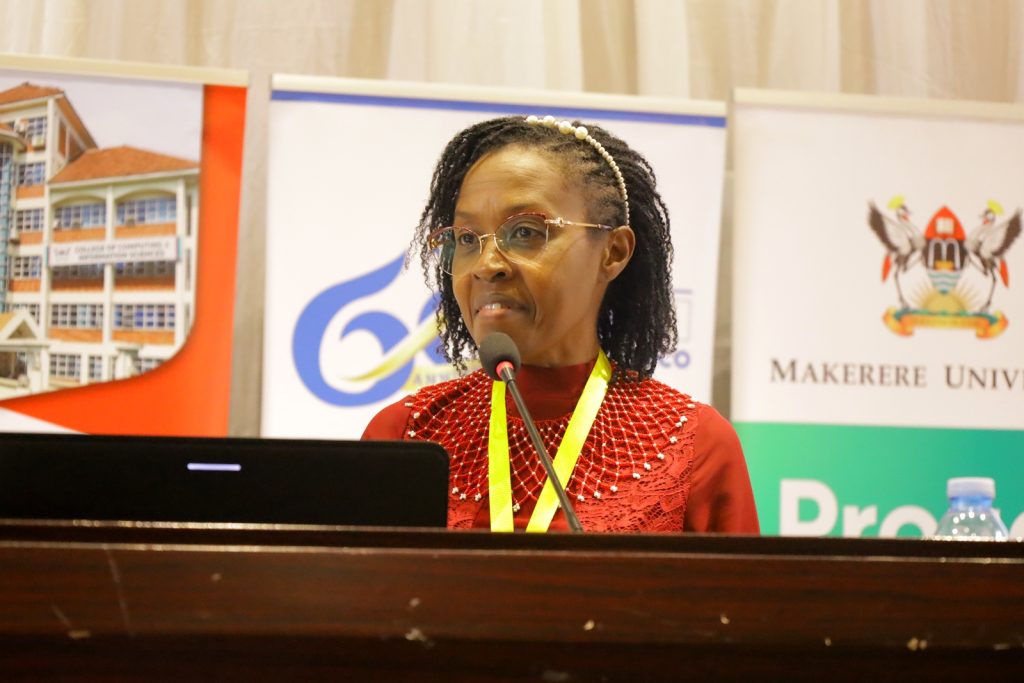
One of the recommendations of the guide under development is that ARCMoW’s stakeholders should come together and create a specific place for oral heritage, which is Africa’s living heritage. Citing examples such as traditional marriage ceremonies and decisions on where one ought to be buried in case of dispute e.g. the Kenyan Case of S. M. Otieno where customary law took precedence over common law, Dr. Muthuma said, “We have to be the ones to create a section or instrument in the Memory of the World where oral traditions are taken care of.”
So far, the guide contains chapters on; 1) Specific aspects of the region 2) Analysis and management of risks 3) How to involve the community 4) How to handle natural disasters 5) How to teach preventive conservation of documentary heritage and 6) Standards and handbooks on disaster prevention (ISO, ICA, IFLA, CCAAA, IASA etc.).
Prof. Magara equally shared the ten loss factors he is contributing to documenting in the guide namely; 1) Physical forces 2) Theft and vandalism 3) Fire 4) Water 5) Biological dangers (insects, etc.) 6) Chemical dangers 7) Light 8) Temperature 9) Humidity and 10) Loss of information due to obsolete equipment.
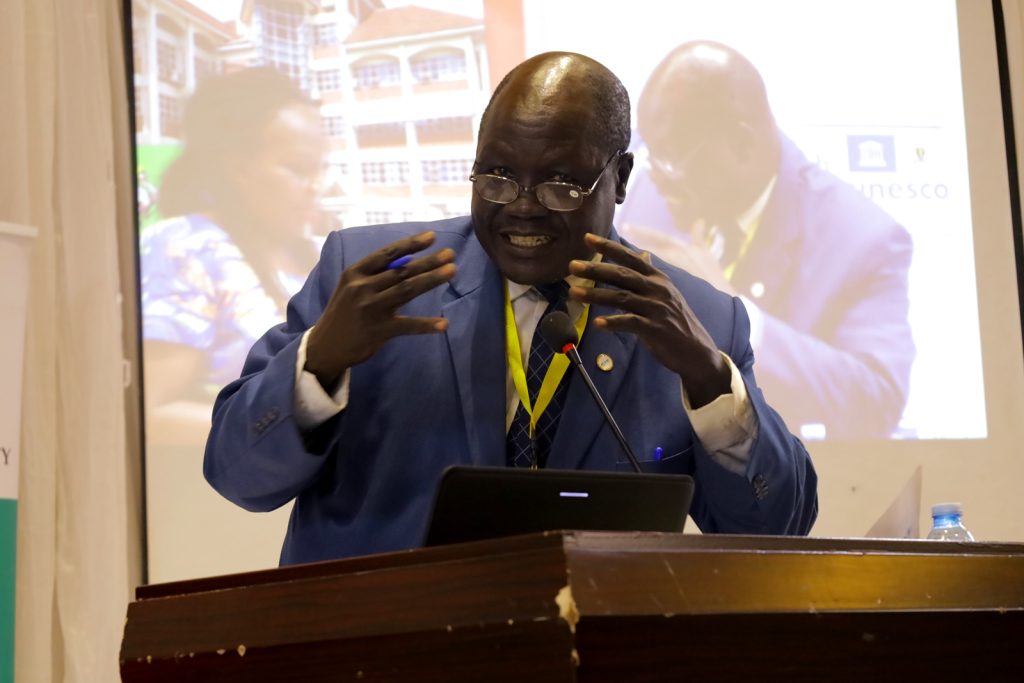
The seminar also featured a session on reflections chaired by Dr. Dominic Lali Mundrugo-Ogo, Assistant Secretary General, UNATCOM. Contributors to the session included Assoc. Prof. Ruth Nalumaga, the University Librarian, Makerere University and Mr. Adonia Katungisa, Director, National Library of Uganda (NLU). Additional contributions were from representatives of the; Uganda Library and Information Association (ULIA), Constorium of Uganda University Libraries (CUUL), Cross-Cultural Foundation Uganda, National Records Centre and Archives, Ministry of Public Service, Library and Information Services, Parliament of Uganda, Uganda Broadcasting Corporation and Academia, among others.
Dr. Mundrugo-Ogo thanked panelists and participants for contributing to the discussions, noting that a lot of ground had been covered in line with the seminar theme. “We need to document our African cultural values, rituals and practices. It is a challenge for all of us to work in that direction.”
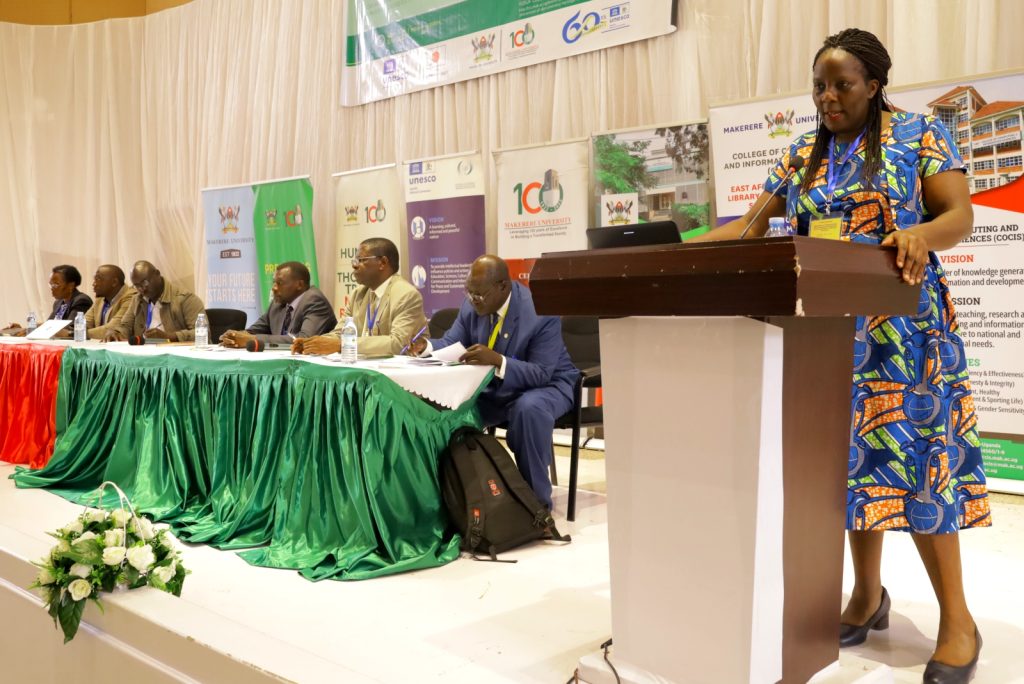
He challenged representatives of institutions present to each nominate of what entries ought to be included in the national register for consideration by National Committee of the Memory of the World. “Today’s meeting will be fruitful if henceforth, we start receiving proposals coming forward to form the basis for the national committee to act.”
Delivering the closing remarks on Day One, the Principal CoCIS, Prof. Tonny Oyana on behalf of the Vice Chancellor and Makerere University thanked UNESCO represented by Ms. Misako, SCEaR-WGA, UNATCOM and all participants for contributions to the efforts to preserve Africa’s Documentary Heritage. He reassured the stakeholders that despite the risk posed lack of documentation to the preservation of oral African knowledge, technology through various platforms offers a lifeline to not only embark on but also accelerate these efforts.
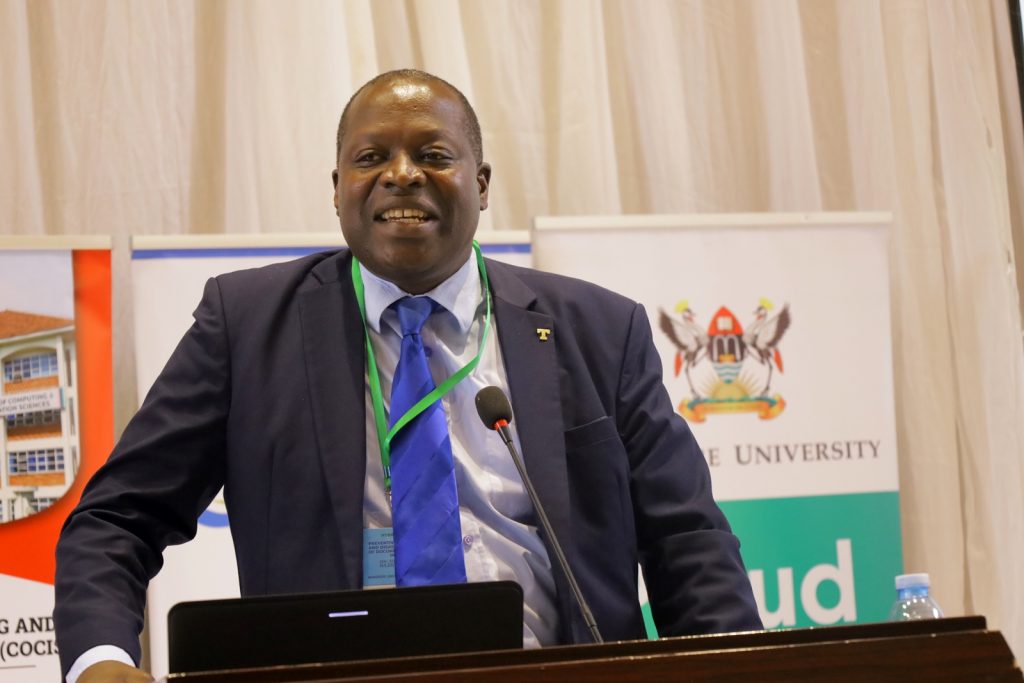
“I want to reassure all of you that we have new resources that we need to look to such as YouTube. We need to rewrite these literary elements or adopt oral documentation and we have the technology to help us document this knowledge” he said.
Prof. Oyana shared that the Makerere University Strategic Plan aspires to make the institution more research-led, with a research agenda that lays emphasis on community engagement, and commended the organisers on a job well done in this regard. “Your work Prof. Magara is well aligned to our research agenda and creating visibility for the University.”
Day One of the Seminar was moderated by the Principal Public Relations Officer, Ms. Ritah Namisango. Additional recommendations from Day One included the need to boost the Bachelor of Cultural Heritage Studies developed by the Cross-Cultural Foundation of Uganda, with support from UNESCO’s ICH Fund to cater for Masters and PhD level studies. The programme is currently offered at Uganda Martyrs’ University, Kabale University, Kyambogo University, and the Islamic University in Uganda.
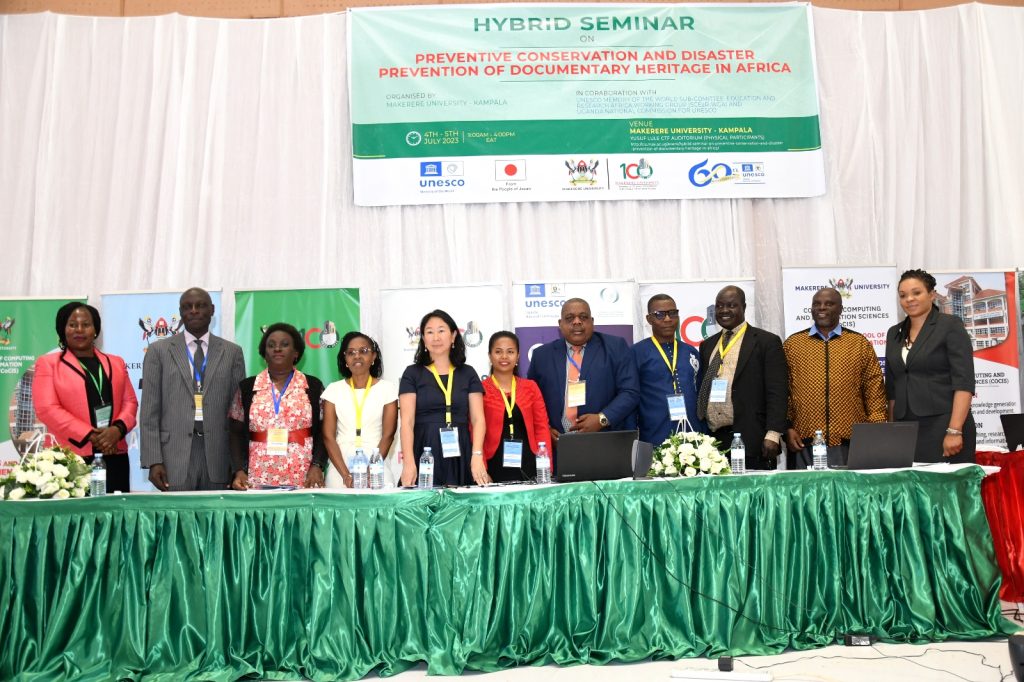
Day Two of the Seminar was dedicated to the ARCMoW Business Meeting and MoW workshop.
You may like
-


Simplicity, Service & Scholarship: Hallmarks of Professor Livingstone Luboobi’s Legacy
-


EfD-Mak Holds 2nd Advisory Board Meeting: Charts Path for Growth
-


Public University Legal and Accounting Officers Trained on Governance and Compliance
-


Celebrating the Life of Prof. Livingstone Sserwadda Luboobi
-


Fare Thee Well Prof. Luboobi
-


Strengthening Grants Management Through Institutional Collaboration and Capacity Building
General
Simplicity, Service & Scholarship: Hallmarks of Professor Livingstone Luboobi’s Legacy
Published
9 hours agoon
July 18, 2025By
Eve Nakyanzi
On Wednesday 16th July 2025, Makerere University lost one of its most cherished sons, Professor Livingstone Sserwadda Luboobi. Described as a mathematician, academic leader, and humble servant, Professor Luboobi devoted more than five decades to the university, rising through the ranks to become Vice Chancellor, and leaving a legacy defined by simplicity, service, and scholarship.
Born to Lameka Serwadda and Sanyu Serwadda on 25th December 1944 in Mitondo, Kalisizo, Kyotera District, Professor Luboobi’s academic career begun as a third-year student at Makerere and continued with unwavering loyalty until his passing. His life’s work reflected not only a commitment to mathematics but also nurturing generations of scholars and leaders across Uganda and beyond.
A funeral service was held in his honour at St. Francis Chapel, Makerere University on 18th July 2025. It was a moment of solemn remembrance and heartfelt tribute. Rev. Canon Dr. John Senyonyi delivered the sermon titled “Only God Knows,” reminding mourners of the mystery and grace of life’s journey. Rev. Canon Geoffrey Byarugaba represented the Kampala Diocese at the service, while former St. Francis Chaplain, Rev. Dr. Canon Johnson Ebong thanked Professor Luboobi for spearheading the Chapel’s expansion. Friends, colleagues, and family members filled the chapel, joined in mourning but also in gratitude for a life that had deeply touched theirs.

Mrs. Lorna Magara, Chairperson of the University Council, spoke movingly about Professor Luboobi’s faithfulness, likening his life to the biblical call in Mark 10:43, “Whoever wants to become great among you must be your servant.”
In his condolence message, the Vice Chancellor, Professor Barnabas Nawangwe, hailed Professor Luboobi as a visionary leader whose legacy is deeply woven into Makerere’s identity as a research-led institution. He credited Professor Luboobi with laying the groundwork for a culture of inquiry—championing graduate programmes, encouraging doctoral training, and fostering international collaborations that strengthened the university’s research profile. “He believed in building systems, not just structures,” noting that many of Makerere’s current research policies stem from his leadership. Even in retirement, Professor Luboobi remained a source of wisdom and guidance, quietly shaping the future of the university he so deeply loved.
Speaker after speaker painted a portrait of a man who led not by pomp, but by quiet strength and deep conviction. The Principal, Professor Winston Tumps Ireeta, speaking on behalf of the College of Natural Sciences (CoNAS), described Professor Luboobi as a foundational figure whose influence is deeply etched in the structures and spirit of the college. He spoke with emotion about Luboobi’s unwavering commitment to academic integrity and his belief in the power of mentorship.

“He was not just a mathematician,” Professor Ireeta said, “he was a visionary who understood the soul of the university. Even in retirement, he remained an advisor, a guide, and a quiet force of wisdom.” He concluded by saying that the college would continue to draw from his example as it navigates the future of science and innovation in Uganda.
Professor Luboobi’s illustrious career at Makerere University included serving as Head, Department of Mathematics from 1990 to 1991. The current Head of Department, Dr. Ismail Mirumbe remembered him as a pillar in the teaching and development of mathematics in Uganda
Professor John Mango, who served as Head, Department of Mathematics during Professor Luboobi’s term as Vice Chancellor from 2004 to 2009 described him as a towering figure of integrity and principle, someone who not only upheld the highest standards of academic conduct but insisted that others around him do the same. “He was a pillar in the department,” Prof. Mango remarked, “and his moral compass was unwavering.”

He recalled instances where Professor Luboobi made firm decisions, including terminating contracts when integrity was compromised, setting a tone that shaped the department’s reputation for honesty and excellence. Even as Vice Chancellor, he remained deeply involved in the department’s affairs, teaching, supervising students, all the while handling top administrative duties punctually. Prof. Mango spoke with great admiration of a man who led by example, mentored many, and whose contributions to mathematics education, research, and policy-making continue to shape the future of the discipline in Uganda and beyond.
According to an article from 1990 written by Dr. Vincent Ssembatya and Andrew Vince at the University of Florida, the Uganda Mathematical Society (UMS), which was formally established on 25th November, 1972 has since inception enjoyed major support from Makerere University and Kyambogo University in terms of infrastructure and leadership. Professor Paul Mugambi, who was also present at Professor Luboobi’s funeral service was elected first president of the UMS. Dr. Saul Nsubuga from the Department of Mathematics represented UMS at the service, honouring Professor Luboobi’s pioneering role in the discipline.
The service also featured tributes from close friends and family. Loved ones shared stories of a man who remained grounded no matter how high he rose, a man who valued relationships and walked closely with his faith. His children and grandchildren remembered him as a father who was ever-present, a listener, and a source of steady guidance.

Professor Daniel Kibuule, son of the late Professor Luboobi and Dean, Faculty of Health Sciences at Busitema University, delivered a deeply personal tribute that painted a full portrait of his father’s life, values, and final days. He expressed gratitude to the University leadership, family, friends, and medical professionals who stood with them during a challenging period. He particularly thanked his siblings, Dr. David Kimera and Dr. Irene Nakiyimba for their unwavering role in caring for Professor Luboobi through illness.
He spoke of a man who, despite great academic accolades, remained deeply humble and committed to discipline, simplicity, and faith. From instilling punctuality and responsibility to ensuring his children charted their own paths, none bearing his surname “Luboobi”, Prof. Luboobi was intentional in every lesson he passed on. Kibuule recalled his father’s insistence on being at home even in his final moments, his strong connection to Christ, and his quiet strength despite his failing health.
Former students and mentees echoed the same sentiments, of a teacher who was generous with his time and invested deeply in others’ growth. The community that gathered was not only there to grieve but to celebrate the quiet legacy of a man whose example continues to live on.
Among the mourners were public figures and leaders, including Hon. Abed Bwanika, Member of Parliament for Kimanya-Kabonera, Hon. Nyombi Thembo, the Executive Director Uganda Communications Commission, and Hon. Dr. Ham-Mukasa Mulira, former Minister of ICT, among others.
In his passing, Makerere University has lost a pillar, but his life reminds us that greatness lies in consistency, in humility, and in service to others. Professor Luboobi’s memory will continue to live on in the minds he shaped, the systems he built, and the values he embodied. He ran his race with grace.
The Writer is a Volunteer in the Public Relations Office, Makerere University
Please click the embedded video below to view the service livestream
General
Public University Legal and Accounting Officers Trained on Governance and Compliance
Published
2 days agoon
July 17, 2025By
Eve Nakyanzi
Legal and accounting officers from public universities across Uganda have convened, for a high-level training workshop organized by Makerere University. The three-day training, taking place from July 16th to 18th, 2025, is aimed at strengthening legal frameworks, improving institutional governance, and ensuring compliance with public finance and procurement laws within higher education institutions.
Ms. Lorna Magara, Chairperson of the Makerere University Council and Guest of Honour at the opening session, commended the initiative as timely and necessary. She addressed the growing backlog of court cases affecting Makerere and other public universities and outlined measures already taken to mitigate legal risks. These include the establishment of a Legal Rules and Privileges Committee and the Directorate of Legal Affairs, part of a broader strategy to improve legal compliance and foster good governance.
Representing the Vice Chancellor, Prof. Winston Tumps – Ag. Deputy Vice Chancellor (Finance and Administration), described the training as both strategic and practical. “It is imperative that we learn from each other, especially in how we handle employee litigation and institutional legal risks,” he remarked. He added that the program is designed to promote experience-sharing across universities and enhance collective institutional growth.

In his address, Mr. Yusuf Kiranda, University Secretary at Makerere University, emphasized the urgent need for robust legal oversight and more effective case management mechanisms within public universities.
The training featured a keynote address by the Attorney General of Uganda, Hon. Kiryowa Kiwanuka, who provided critical insights into legal expectations for public institutions. He warned that failure to heed legal advice could result in personal liability for accounting officers, citing a precedent involving the Uganda Cancer Institute. “Universities must consult the Attorney General’s chambers before entering into major contractual obligations,” he advised, urging legal officers to document decisions meticulously as proper record-keeping forms the first line of defense in legal disputes.

Hon. Kiwanuka further discussed the government’s ongoing efforts to recentralize legal services to ensure alignment with the Attorney General’s office. He cautioned in-house counsel against becoming overly entangled in decision-making processes, stressing the need for objectivity. Other key issues he addressed included contract approvals, misuse of Memoranda of Understanding (MoUs), and lapses in procurement processes, particularly at the close of financial years.
Participants also benefited from insights by Hon. Justice Musa Ssekaana of the Court of Appeal, who offered an in-depth analysis of judicial review and its significance in promoting lawful, transparent university governance. He called on university legal officers to act with clarity, timeliness, and accountability.
Lady Justice Joyce Kavuma, Judge of the High Court, delivered a comprehensive presentation on dispute and claim management involving public universities. She addressed emerging trends in civil litigation, emphasizing the importance of due process, transparency, and clear communication in resolving employment, student, and contractual disputes. Drawing on real case examples, she urged institutions to strengthen internal systems, embrace participatory governance, and adopt regional best practices to minimize litigation and protect institutional reputation.

The training reflects a shared commitment among public universities to build a more accountable, legally sound, and strategically aligned higher education system in Uganda. Through peer learning and collaboration, participating institutions aim to reduce litigation, enhance institutional autonomy, and uphold the rule of law.
Participating universities include Makerere University, Kyambogo University, Mbarara University of Science and Technology, Busitema University, Mountains of the Moon University, and Lira University.
The training concludes on July 18th 2025, with sessions focusing on employment dispute management in public universities and the implications of recent PPDA Appeals Tribunal decisions on procurement and disposal practices within public entities.
General
Celebrating the Life of Prof. Livingstone Sserwadda Luboobi
Published
2 days agoon
July 17, 2025By
Mak Editor
A Visionary Leader, Seasoned Mathematician, & Humble Academician
It is with profound love and respect that we celebrate the life of Prof. Livingstone Sserwadda Luboobi, a distinguished scholar, transformative leader, and beloved Vice Chancellor Emeritus of Makerere University. His legacy is woven in the fabric of African higher education, marked by intellectual brilliance, unwavering commitment to academic excellence, and a life of selfless service.
A Life of Purpose and Vision
Prof. Luboobi was more than a mathematician. He was a visionary, whose work transcended equations and research papers. Serving as Vice Chancellor from 2004 to 2009, he led Makerere University through a critical period of growth and transformation. Under his guidance, the university expanded its reach, strengthened its academic rigor, and embraced innovation and reform. His calm demeanour and principled decision-making earned the admiration of students, faculty, and peers alike.
Prof. Luboobi was deeply committed to nurturing talent and fostering intellectual curiosity, leaving an indelible mark on the institution’s culture and future direction.
Beyond Uganda, Prof. Luboobi’s influence resonated across the global academic community. He was a passionate advocate for the transformative power of science and education, often speaking at international forums and collaborating on research that bridged continents and disciplines. His work helped elevate the profile of African scholarship on the world stage.
His legacy endures not only in the impressive body of work he left behind but also in the countless lives he touched – students, educators, and leaders who continue to draw inspiration from him.
Academic and Leadership Journey at Makerere University
An illustrious alumnus of Makerere University, Prof. Luboobi graduated with First Class Honours in Mathematics, laying the foundation for an extraordinary academic journey. He pursued further studies at the University of Toronto (MSc in Operations Research, 1971-72) and the University of Adelaide (PhD in Biomathematics, 1978–80). His scholarly journey spanned prestigious institutions worldwide, including UCLA, the University of Bergen, and the University of Dar es Salaam, establishing him as a scholar of global repute and a proud ambassador of African intellectualism.
Prof. Luboobi’s service to Makerere begun in 1970 as a Special Assistant-remarkably, while still an undergraduate, rising through the ranks to full Professor in 1997. He served as Head of Department, Dean of the Faculty of Science (1994–2001), and later became the university’s first elected Vice Chancellor. His tenure brought new energy to institutional leadership, characterized by transparency, inclusivity, strategic direction and accountability.
Strategic Reforms and Institutional Impact
A true architect of transformation, Prof. Luboobi chaired the development of Makerere’s first locally-conceived Strategic Plan (1990–91). He was instrumental in securing a UGX30 billion grant from NORAD in 1999, which revitalized key academic areas such as computing, gender studies, and food science. He co-founded the Makerere University Private Sector Forum, bridging the gap between academia and industry, and strengthening alumni engagement and resource mobilization.
Pioneering Biomathematics and Mentorship
As one of Africa’s pioneering biomathematicians, Prof. Luboobi introduced mathematical modeling to tackle real-world problems in epidemiology, ecology, and operations research. His scholarly contributions – over 150 publications – reflect the depth and breadth of his research. Yet, perhaps his most lasting impact lies in mentorship: he supervised more than 35 PhD and over 50 MSc students, including Makerere’s first female PhD graduate in Mathematics, nurturing a generation of scholars and leaders.
Prof. Luboobi’s Contribution to the Internationalization of Makerere University
Prof. Luboobi played a pivotal role in advancing the international profile of Makerere University. Demonstrating remarkable personal commitment, he utilized his own resources to support the establishment of the University’s International Office. This strategic initiative laid the foundation for a more structured and effective engagement with global academic institutions, development partners, and international students. As a result, Makerere University significantly enhanced its global footprint, forming numerous international collaborations and attracting increased academic and research opportunities from abroad.
In addition to his contributions to internationalization, Prof. Luboobi was also instrumental in revitalizing the University’s Public Relations Unit. Under his guidance, the unit adopted more proactive and professional communication strategies, which greatly improved the institution’s public image. This, in turn, fostered greater public trust and strengthened the university’s reputation both locally and internationally. His visionary leadership in these areas has had a lasting impact, positioning Makerere University as a leading institution in East Africa and beyond.
Global Recognition and Enduring Legacy
Prof. Luboobi’s contributions earned him widespread recognition. In 2008, the University of Bergen awarded him an Honorary Doctorate for his role in internationalizing academia. Makerere University honoured him with a Lifetime Achievement Award in 2013, and the Government of Uganda conferred upon him a National Gold Medal for his unwavering service to education and national development.
Even after retirement, Prof. Luboobi remained an active contributor to academic life-lecturing, supervising, and advising the university.
A Lasting Light in African Academia
Prof. Livingstone Sserwadda Luboobi’s life was a model of scholarship anchored in service, leadership tempered with humility, and an unshakable belief in the power of education. He leaves behind a vibrant academic legacy and a trail of inspired minds. His contributions will continue to shape Makerere University, Uganda, and the global academic community for generations to come.
We extend our heartfelt condolences to his family, colleagues, and the entire Makerere University community during this difficult time.
May his soul rest in eternal peace.
Trending
-

 General2 weeks ago
General2 weeks agoRe-advert: Admission to Undergraduate Programmes 2025/2026
-

 General1 week ago
General1 week agoRe-Advert for Applications for Diploma and Certificate Training
-

 General5 days ago
General5 days agoMakerere University Fees Waiver for 40 First Year Female Students 2025/2026
-

 General2 weeks ago
General2 weeks agoPress Statement on Ranking
-

 Health1 week ago
Health1 week agoCall for Applications: Responsible Conduct of Research (RCR) Training Course
